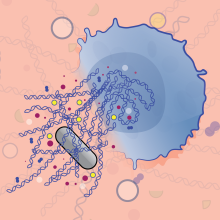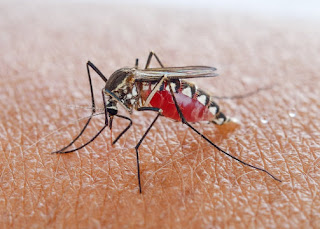From sleeping cell to assassin—how immune cells work
Scientists at the University of Dundee have distributed one among the foremost comprehensive studies into however immune cells sense
and reply to their setting to fight infection and destroy tumours.
The analysis team, United Nations agency have printed their findings within the journal Nature medicine, aforesaid the results offer necessary insights into however immune responses may well be manipulated for the treatment of response diseases and cancer.
The analysis team, United Nations agency have printed their findings within the journal Nature medicine, aforesaid the results offer necessary insights into however immune responses may well be manipulated for the treatment of response diseases and cancer.
Professor Doreen Cantrell and academician Angus Lamond, each within the faculty of Life Sciences at Dundee, LED the study, that targeted on T lymphocytes, a population of white blood cells essential for immune responses to cancer, bacterium and viruses, and transplanted organs.
They mapped however these cells management expression of quite nine,000 proteins as they participate in immune responses. They conjointly mapped in fine detail however a vital immune-suppressive drug, accustomed stop organ rejection in transplants, by selection controls these processes.
Professor Cantrell aforesaid, "These results have implications for our understanding of however harmful or useful immune responses may be manipulated for higher health outcomes in organ transplantation and cancer.
"A important discovery is that exposure to foreign stimuli, like viruses and bacterium, build T lymphocytes activate expression of key sensors for O and nutrients and conjointly build T lymphocytes activate expression of transporters that enable cells to import nutrients from their setting.
"Drugs accustomed block immune responses work by dominant these key metabolic pathways."
The study conjointly shows however the flexibility of immune cells to mount effective responses may be formed by the O and nutrient setting the cells add.
The analysis team, together with Dr. Andy Howden, Dr. Jens Huckelmann, and Alejandro Brenes, brought along consultants in medicine and scientists like an expert in stylish technology in mass spectrum analysis and information science. This allowed a novel exploration of however T cells re-programme expression of thousands of cellular proteins in response to stimulation and provided a comprehensive understanding of however immune suppressive medication management lymphocyte behaviour.
Professor Lamond aforesaid, "These important discoveries show the big price of the cooperative analysis setting here at the University of Dundee, that permits world leading scientists to compile their overlapping areas of experience to unravel necessary biological issues."
The analysis was supported by a Wellcome Trust Strategic award to Professors Cantrell and Lamond and used instrumentality and facilities funded by a kingdom analysis Partnership Investment Fund (UKRPIF) grant, awarded by analysis England in partnership with the Scottish Funding Council.
Email us at: clinicalmicrobiology@pulsusgathering.com




Comments
Post a Comment